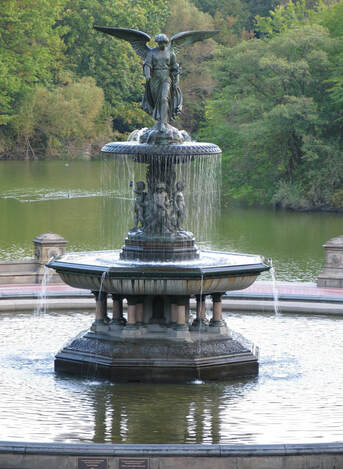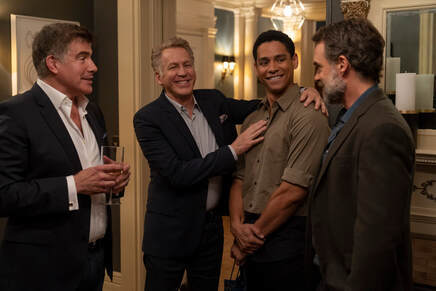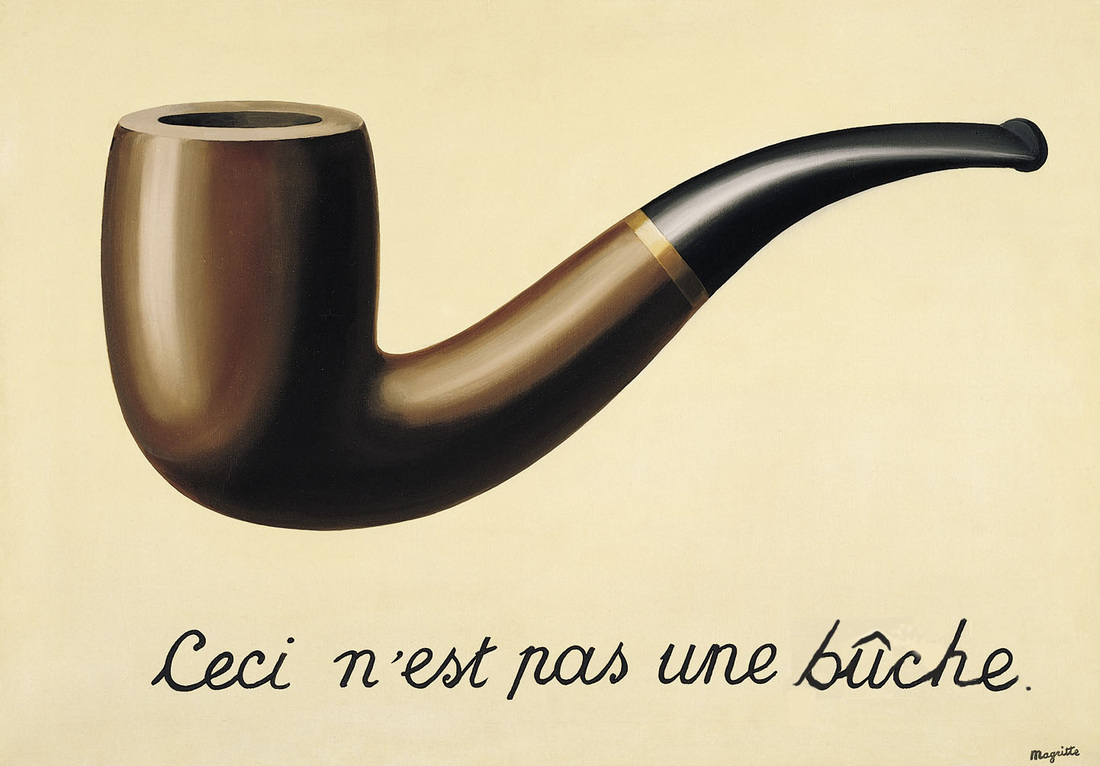
Mythological Quest
Another column from the vaults
In honour of World Pride in New York City and the 50th anniversary of the Stonewall Riots I dug out this old nugget... my Xtra column from 25 years ago on the 25th anniversary of Stonewall. That was my first-ever trip to NYC, an emotional and intellectual roller-coaster experience... which included being cruised by David Bowie outside the Walter Kerr Theatre! I was still a relatively new homo and seeing Tony Kushner's epic Angels in America, my first Broadway play, had an enormous impact. Twenty-five years ago AIDS was the leading cause of death of Americans 25 to 44. Reflecting the urgency of the LGBTQ2 movement back then, there was a renegade parade down Fifth Ave organized by ACT UP, in addition to the sanctioned one that marched down First Ave.
Plus ça change. There are two rival parades again this year in New York, and universal healthcare is still an unrealized dream. I don' know whether to delight or despair on how relevant this 25-year-old piece of writing remains. I love its ambition; as usual I'm trying to do too much in too short a space.
"[Canada's] benevolent Crown is as tarnished as Liberty’s torch. All national myths are bogus." The other thing I like is how the piece exemplifies one of the most important and appealing aspects of LGBTQ2 identities: Being queer is not a static identity; it's the repeated act of querying and queering, a questioning, a quest. We have many marches to go.
Happy Pride everyone.
“There She Is, Myth America”
Bent Dissent column
July 22, 1994, Xtra
I only had a few moments between Stonewall 25 in New York City and Pride Day in Toronto to write this column. As the homos parade pass my window with their free spirits and genitalia, I’m thinking big thoughts. (No, I’m not a size queen.) Problem is, I’ve got one brain cell left... too much fuel has spilled on this jet-setter. So please bear with me through this scribbled postcard.
Everything my friends and I did in New York revolved around the US mythology of the individual: the anniversary of Stonewall, the Broadway production of Angels in America, cheap drinks and the talk of geniuses.
It was exhilarating to be in New York for the first time. I’ve seen the buildings before, I’ve walked the streets. It all seems so familiar. This is the centre of one of the world’s greatest powers, the US media. This is the home of Myth America -- the Statue of Liberty with its grand exterior and hollow construction.
A land of immigrants; the home of the free. That’s the fundamental lie that Tony Kushner’s Angels in America holds up to the sky to twist slowly in the chilling winds of the US landscape.
The character Belize is an African-American nurse on an AIDS ward. In the second part of this magnum opus, entitled Perestroika, he has the line: “The white cracker who wrote the national anthem knew what he was doing. He set the word ‘free’ to a note so high nobody can reach it.”
As Kushner and others have observed elsewhere, one of the highest prices paid for the myth of the free individual is the absence of universal healthcare in the US.
That was blatantly clear when my friends and I joined the renegade ACT UP march along Fifth Ave. In the US, the lesbian and gay civil rights movement is inextricably tied to healthcare reform. There’s no freedom if your only choice is between dragging your family into destitution to pay your medical bills, or going off quietly to die alone.
But I’m beginning to sound like the usual smug Canadian tourist listing the benefits of Canadian collectivism over US individualism. Our benevolent Crown is as tarnished as Liberty’s torch. All national myths are bogus.
Instead of debating specific strategies for real change, Angels presents a very US response, one also very familiar to any homo -- the personal is political.
The play is not about rights per se, it’s about responsibility -- not the responsibility of the state, but individual responsibility. Simply put, if you are able to love, then you are no longer a free individual. (Of course, love ain’t simple – that’s why both parts of Angels run seven hours.)
Eventually, the ACT UP march folded into the official international march. Both proceeded into Central Park. What a beautiful sight: dancing lesbians, nude rude boys in the bush, teenagers rollerblading backward down the steps to the Bethesda Fountain passed a queen giving them an Evita salute -- for a fleeting moment, a million queers of all persuasions created an enchanted forest.
I smuggled these images through Canada Customs because they are evidence of love, of people caring for one another, of countless individual acts of benevolence and grace -- the acts of angels, of faeries, in the woods.
Another column from the vaults
In honour of World Pride in New York City and the 50th anniversary of the Stonewall Riots I dug out this old nugget... my Xtra column from 25 years ago on the 25th anniversary of Stonewall. That was my first-ever trip to NYC, an emotional and intellectual roller-coaster experience... which included being cruised by David Bowie outside the Walter Kerr Theatre! I was still a relatively new homo and seeing Tony Kushner's epic Angels in America, my first Broadway play, had an enormous impact. Twenty-five years ago AIDS was the leading cause of death of Americans 25 to 44. Reflecting the urgency of the LGBTQ2 movement back then, there was a renegade parade down Fifth Ave organized by ACT UP, in addition to the sanctioned one that marched down First Ave.
Plus ça change. There are two rival parades again this year in New York, and universal healthcare is still an unrealized dream. I don' know whether to delight or despair on how relevant this 25-year-old piece of writing remains. I love its ambition; as usual I'm trying to do too much in too short a space.
"[Canada's] benevolent Crown is as tarnished as Liberty’s torch. All national myths are bogus." The other thing I like is how the piece exemplifies one of the most important and appealing aspects of LGBTQ2 identities: Being queer is not a static identity; it's the repeated act of querying and queering, a questioning, a quest. We have many marches to go.
Happy Pride everyone.
“There She Is, Myth America”
Bent Dissent column
July 22, 1994, Xtra
I only had a few moments between Stonewall 25 in New York City and Pride Day in Toronto to write this column. As the homos parade pass my window with their free spirits and genitalia, I’m thinking big thoughts. (No, I’m not a size queen.) Problem is, I’ve got one brain cell left... too much fuel has spilled on this jet-setter. So please bear with me through this scribbled postcard.
Everything my friends and I did in New York revolved around the US mythology of the individual: the anniversary of Stonewall, the Broadway production of Angels in America, cheap drinks and the talk of geniuses.
It was exhilarating to be in New York for the first time. I’ve seen the buildings before, I’ve walked the streets. It all seems so familiar. This is the centre of one of the world’s greatest powers, the US media. This is the home of Myth America -- the Statue of Liberty with its grand exterior and hollow construction.
A land of immigrants; the home of the free. That’s the fundamental lie that Tony Kushner’s Angels in America holds up to the sky to twist slowly in the chilling winds of the US landscape.
The character Belize is an African-American nurse on an AIDS ward. In the second part of this magnum opus, entitled Perestroika, he has the line: “The white cracker who wrote the national anthem knew what he was doing. He set the word ‘free’ to a note so high nobody can reach it.”
As Kushner and others have observed elsewhere, one of the highest prices paid for the myth of the free individual is the absence of universal healthcare in the US.
That was blatantly clear when my friends and I joined the renegade ACT UP march along Fifth Ave. In the US, the lesbian and gay civil rights movement is inextricably tied to healthcare reform. There’s no freedom if your only choice is between dragging your family into destitution to pay your medical bills, or going off quietly to die alone.
But I’m beginning to sound like the usual smug Canadian tourist listing the benefits of Canadian collectivism over US individualism. Our benevolent Crown is as tarnished as Liberty’s torch. All national myths are bogus.
Instead of debating specific strategies for real change, Angels presents a very US response, one also very familiar to any homo -- the personal is political.
The play is not about rights per se, it’s about responsibility -- not the responsibility of the state, but individual responsibility. Simply put, if you are able to love, then you are no longer a free individual. (Of course, love ain’t simple – that’s why both parts of Angels run seven hours.)
Eventually, the ACT UP march folded into the official international march. Both proceeded into Central Park. What a beautiful sight: dancing lesbians, nude rude boys in the bush, teenagers rollerblading backward down the steps to the Bethesda Fountain passed a queen giving them an Evita salute -- for a fleeting moment, a million queers of all persuasions created an enchanted forest.
I smuggled these images through Canada Customs because they are evidence of love, of people caring for one another, of countless individual acts of benevolence and grace -- the acts of angels, of faeries, in the woods.



 RSS Feed
RSS Feed